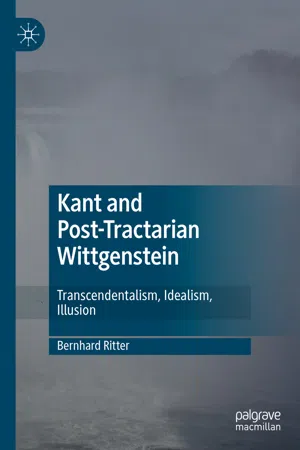A main source of philosophical puzzlement, according to Wittgenstein, is that we do not command a clear view of the ways in which we use language: ‘A main source of our failure to understand is that we don’t have an overview of the use of our words. – Our grammar is deficient in surveyability.’ (PI §122) This is not to say that language, as such, is in need of greater surveyability. Wittgenstein’s grammatical reminders are directed at those who attempt to move around reflectively in language, people in philosophy, for the most part. He reacts to what struck him as peculiar in what philosophers say. They say things that in his view are born of a misconception about philosophical discourse itself. He approaches philosophical problems in the way he does after having found that he had said such things himself. Wittgenstein is, in this respect, very much a philosopher of philosophy, struck by what philosophers say and what may tempt them to say it. One expression of this misconception is the ‘metaphysical use of words’, or the use of ‘metaphysical propositions’, as he calls it (cf. PG: 128, 130, BB: 55, PI §58b).
In Wittgenstein,
metaphysical propositions are distinguished from both
grammatical and
empirical propositions. Their relation is best approached with the help of a remark on the third group, empirical propositions:
[P]ropositions turn out to be even more like yardsticks than I previously believed. The fact that one measurement is right automatically excludes all others. I say automatically: just as all the graduation marks are on one rod, the propositions corresponding to the graduation marks similarly belong together, and we can’t measure with one of them without simultaneously measuring with all the others. – It isn’t a proposition which I put against reality as a yardstick, it’s a system of propositions. (PR: 109f.)
Any proposition belonging to the system represents a way things may or may not be with regard to colour,
which is their assertible content
(cf.
Hanks 2014: 2).
If any of these propositions is true, it is contingently true (cf. WVC: 77, LWL: 93). If any of them is false, then not only is its negation
true, but there will also be something assertible by a positive proposition of the same system that is true.
1Propositions like ‘Black and white cannot be simultaneously in the same place’, in contrast, represent nothing that may or may not be the case. They lack assertible content.
In uttering them, one can only be talking of the yardstick, not making an application of it, according to Wittgenstein. These are what he calls ‘grammatical propositions’: statements about our way of representing how things are, rather than about how things are. His view is not that the negation
of a grammatical proposition
expresses a contradiction
and its affirmation a necessary truth.
According to Wittgenstein, we should rather say that if the component words are taken to mean what they actually mean, no possible fact corresponds to either.
This might lead one to interpret Wittgenstein as holding that all metaphysical propositions are nonsensical.
A passage from a 1934–35 lecture, which says that ‘it is very important to see that philosophy
always turns upon nonsensical questions’, might suggest such a view (AWL: 106, cf. 23). Accordingly, a ‘metaphysical use’ of language would be a deviant way of using a grammatical proposition that is not recognized as such. In this way, there would be an intimate connection between grammatical propositions
and metaphysical uses. However, the view that all metaphysical propositions
are nonsensical is difficult to reconcile with several of Wittgenstein’s later remarks, one of which follows here:
2 Don’t we understand it, when Strachey makes surmises about what Queen Victoria may have seen in her mind’s eye just before her death? Of course – but didn’t people also understand the question how many souls there was room for on the point of a needle? That is to say: the question whether one understands this does not help us here; we must ask what we can do with such a sentence. – That we use the sentence is clear; how we use it is the question. (RPP I §366 = vW 131: 187f., 3 September 1946.)
Wittgenstein concedes here that we have some understanding of this kind of proposition, though it lacks a clear relation to criteria
for something’s being so. Surmises about Queen Victoria’s dying thoughts are in this respect like sceptical hypotheses,
which are ‘metaphysical’ for Wittgenstein (cf. PG: 136).
If these hypotheses are problematic in a way that affects their sceptical
force, this will have to derive from their lack of connection with ordinary factual claims and ordinary ways to settle them. This suggestion will be examined later on (cf. chapter
15).
There are two further difficulties with the view under consideration that I only wish to mention briefly. First, it may be tolerably clear what Wittgenstein means by a ‘metaphysical proposition’ in some preferred contexts, but he hardly says enough to support a classification for any philosophical proposition one may be interested in. To assert that all, and not only some, metaphysical propositions are nonsensical assumes a more determinate notion than is likely to exist in Wittgenstein. Second, language allows for countless ways in which the use of a word may...
